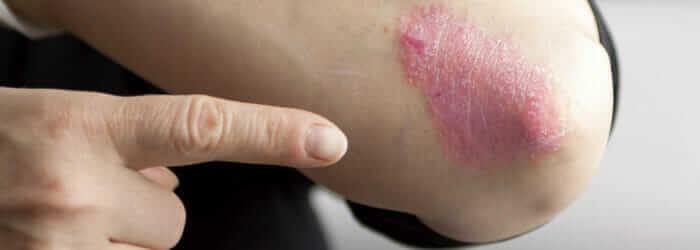
Eczema – A separation conflict
It has been a very hectic fall season for me with very little opportunity for blogging. However there have been a few requests for blog topics that are of interest to my GNM students that finally, now that I have most of my other duties out of the way, I am able to address starting with the separation conflict eczema.
Of course the majority of these issues I have been asked to blog about are what we call healing phases in the GNM.
A chronic illness
Hanging healing phases from the conventional standpoint fall into the category of chronic illnesses. Some of course are more debilitating than others depending on what part of the physiology we are talking about. By hanging we mean that the condition never fully goes through the entire resolution/ healing phase. It just “hangs” because there are tracks or reminders that keep us in a low level of conflict activity and as a result, the condition never fully heals.
The conventional “treatment” of choice for most of these chronic healing phases, which for the most part involve inflammation, are steroids in one form or another. For example with eczema or psoriasis, the recommended treatment is a steroid cream which will “suppress” the healing phase affecting the outer skin as long as it is being applied. That’s fine in the short term to make someone comfortable, but in the long terms it can create problems.
Topical remedies
Most people don’t understand that by using these topical remedies, which can be bought over the counter without a prescription, not only suppress the inflammation, which is part of the first half of the healing phase, but also prolong the healing phase. When someone stops using it, there is a rebound effect where all the symptoms flare up. Of course this creates a vicious cycle and a condition that may have run its course naturally uninterrupted over a period of 6 – 8 weeks, becomes a condition that lasts for years.
When one understands the origin of the eczema, which is a “separation conflict”, even if it has lasted for years on and off, it can run its course over a period of three weeks. Literally from the moment the origin is discovered the skin begins to revert back to normal.
Separation conflict by touch
Eczema is one of those conditions that results from “separation by touch” meaning it is a literal association where someone or something touched you at the moment of the conflict, or it could be associated in the figurative sense with respect to relationships. In which case we must observe our laterality to understand correctly the person we were separated from and why a particular body side reacted.
We have separation conflicts that develop out of an unwanted separation and then we can also have separation conflicts that are desired but cannot be achieved. In the latter case, the body would express this differently. For example if we were unable to push someone away or out of our lives, then the outer part of our upper arms and or the elbows would be affected with ulcerations during the conflict activity. These ulcerations are microscopic and go unnoticed. However when we manage to find a solution, the eczema will develop.
If we have a separation that is against our will or a painful separation from someone, then we could develop a condition on a part of our body which is associated with where we remember them touching us, for example a loving embrace, in which case it would be the inside of the arms that have been affected and that’s where the eczema would express itself. It could also express itself on our back where we remember the loved one’s touch while embracing us.
These are just a few examples but where the skin is concerned the possibilities are astounding. One thing we must remember is that the location of the eczema is associated with something very specific and if we are unable to unravel the mystery so to speak, the condition may persist if it has become chronic.
What was resolved?
I always look at what was resolved at the time the condition first appeared because that gives us the biggest clue to the origin.
Psoriasis is literally the same thing. The difference in this case is that here we have a conflict active phase, superimposed on an existing healing phase which causes the red and flaking skin. In other words, we had another separation conflict that was similar in nature at the same time we were already in the healing phase of the previous conflict so in this case we are looking at two conflicts, one in healing and the other in activity which mean we have to do double the detective work to unravel the mystery!
